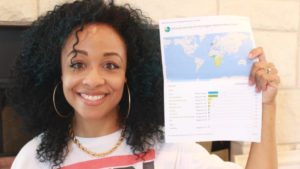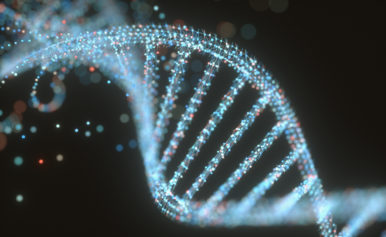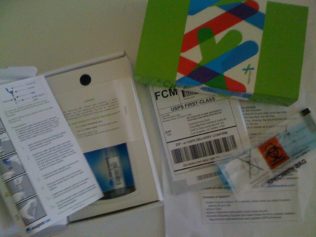
RyMingTahn Daniels announces her DNA ancestry results on her YouTube channel. Check her out at: https://www.youtube.com/user/Rymingtahn
Tracing your genetic roots back to the very lands your ancestors roamed is all the rage right now. Today, it’s seemingly hard to get away from the countless Ancestry.com and 23andMe ads that pop up on our TV screens every so often.
Now the fulfilling, and often surprising, search into our genetic histories is prompting young Black Americans to dig deeper into the bitter truths that shape their Blackness today.
According to Vice, these new, relatively cheap DNA testing kits provided by companies like Ancestry and 23andMe are just one of the few ways people can trace their ancestral history. For the most part, there’s no paper trail for the descendants of enslaved Africans who were uprooted from their homeland and brought to America. It’s no surprise then that a large majority of people partaking in these DNA ancestry searches are African-American, according to the news site.
Many Blacks who take the ancestry tests — which consist of spitting in a tube and mailing the sample back to a lab — are surprised to find that a significant chunk of their ancestry is European. In fact, a 2012 study exploring the genetic ancestry of African-Americans, Latinos and European Americans found that the average ethnicity estimate for Black Americans is 73.2 percent African, 24.0 percent European and 0.8 percent Native American.
It’s common knowledge, however, that the presence of European ancestry in African-Americans is often linked to the hard truth that white, European slave masters regularly assaulted and raped their enslaved female workers, resulting in the birth of children. Consensual interracial marriages are another source.
“There is something really weird, surreal, spiritually challenging about it,” Nikiah Washington, who discovered that 26 percent of her DNA is of British origin, told Fusion. “If a man did not rape that slave, I would not be here.”
Workout twins Kevin and Keith Hodge posted a YouTube video revealing their DNA ancestry results late last year. According to the news site, the Hodge brothers decided to test their DNA after members of their online audience were upset that the twins — who are both light-skinned — identified themselves as Black, not “mixed” or biracial. Their ethnicity estimate results showed 58 percent African ancestry, or “majority African,” as they called it in their video.
Because African-Americans are often chastised on the “degree” of their Blackness based on skin tone alone, some Blacks see the ancestry DNA tests as a way to prove or re-affirm the “biological degree” of their Blackness.
“Skin tone is a really big thing for African-American people,” Washington said, noting how her lighter-skin challenged her identity as a Black woman. “I was a little afraid to broadcast [my results because] I have a lot of issues with people questioning how Black I am.”
Aside from affirming their Blackness, some African-Americans are digging into their ancestral past in order to patch up family lines split by the decades-long slave trade. According to Fusion, both Ancestry.com and 23andMe offer options to be matched with living genetic relatives in their databases.
A YouTuber by the name @Udoka O said she was surprised when a host of distant cousins living in America contacted her to make a familial connection. Udoka said it was a shocker because her entire family is from Nigeria, making her unaware that she had genetic cousins living in the U.S.
No matter the reason for tracing genetic roots, the process of uncovering one’s genetic history provides African-Americans with the surprising, satisfying and sometimes emotional experience of finding out how their genetic pasts impact their present Black identities.


